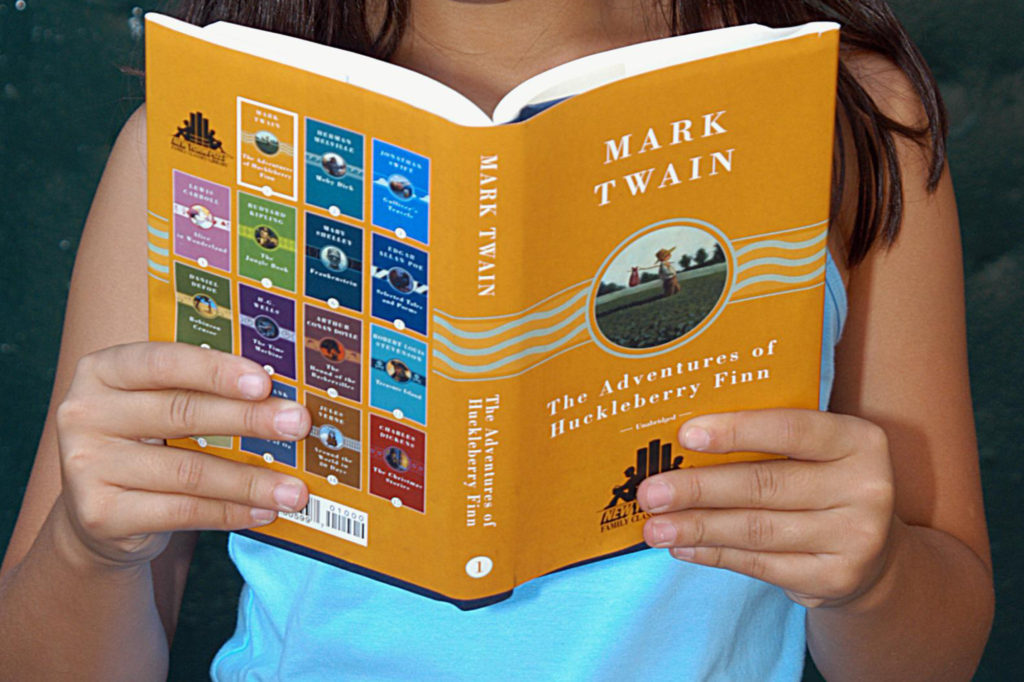Owen Maier ’20

Photo Courtesy of nypost.com
All the American Literature teachers at EA have decided not to read Huckleberry Finn next year and instead read other works by Mark Twain. The novel’s racist undertones contribute to questions about its merits in a classroom setting.
The novel The Adventures of Huckleberry Finn by Mark Twain is a story about Huck’s experiences as a youth along the Mississippi River in the early to mid-1800s. First published in the United States in 1885, the novel has drawn controversy in recent decades. The narrator uses the vernacular of the time, leading to what critics say is vulgar and inappropriate for the classroom. In particular, the narrator’s use of the “n” word in the novel has been attacked for its racist implications. This book has long been controversial. According to PBS, the Concord, MA, library banned the book from its shelves only a month after its release, calling the novel “trash and suitable only for the slums.” Defenders of the novel cite the time period and Twain’s anti-racist motivations as providing sufficient context for his use of the racial slur as well as his stereotypical characterization of one of the characters, the African-American slave Jim. Despite such controversy, the novel has become an indisputable icon of American literature, and Ernest Hemingway claimed that “all modern American literature” stems from The Adventures of Huckleberry Finn.
Some junior American Literature classes read the novel this year. While Lee Billmyer teaches the novel, she says that she is “ambivalent every year as to whether or not I am going to teach Huckleberry Finn.” This ambivalence stems from what she says is “the offensive nature and prolific use of the n-word.”
However, when she does teach the novel, Billmyer appreciates the “mirror it holds up to society that exposes all of society’s foibles and flaws,” and the excellent way in which the novel is written. While she admits that the novel certainly offends some people, Billmyer says that “every book we teach will offend some people in some way” and that “teaching literature is about being responsible about how we approach the text.”
Tony Herman is another American literature teacher that has taught The Adventures of Huckleberry Finn in the past. He says one of the main reasons for teaching the novel is that “Twain’s considered by many as one of the pioneers of regionalism and realism.” While he sees the n-word as a huge issue and an upsetting part of the book, he also acknowledges that “it’s a lot of the other topics he broaches: religion, gender roles, there’s so much going around that’s really uncomfortable.” This, however, allows for lots of good discussion in class based around these issues. In addition to discussing the text itself, Herman finds it interesting to connect the novel’s controversy to the 21st century and by noticing how a lot of the things that made people uncomfortable back then are still relevant today. However, he says that any teacher approaching The Adventures of Huckleberry Finn should beforehand make sure that the students have a good context and background to the uncomfortable aspects of the novel. For Herman, this background was a PBS documentary called “Born to Trouble” that explored the novel’s controversy and banning, as well as class discussions. However, Herman says “you have to figure out when you’re reading in class and happen upon the n-word are you going to not say it? Are you going to pause?”
Ayinde Tate, Head of Diversity and Inclusion, believes the EA curriculum can do without the book entirely, saying that while he understands the defense of the novel, he doesn’t see the novel’s merit as completely overriding its offensive nature. “I get why he uses it because he’s from that time and that’s the lens he wants to go for, however, I think there are plenty of other books that can be used that follow the theme that the story follows.” This problem does not only exist in Huckleberry Finn however. He believes that other works like To Kill a Mockingbird also portrays stereotypical and “downtrodden” black people. He lists Phillis Wheatley’s poetry as an example of literature that does not “paint black people as the demure slave mentality.” Phyllis Wheatley has been a part of the EA curriculum for at least a decade and according to English Department chair Anne Barr, will continue to be taught in coming years.